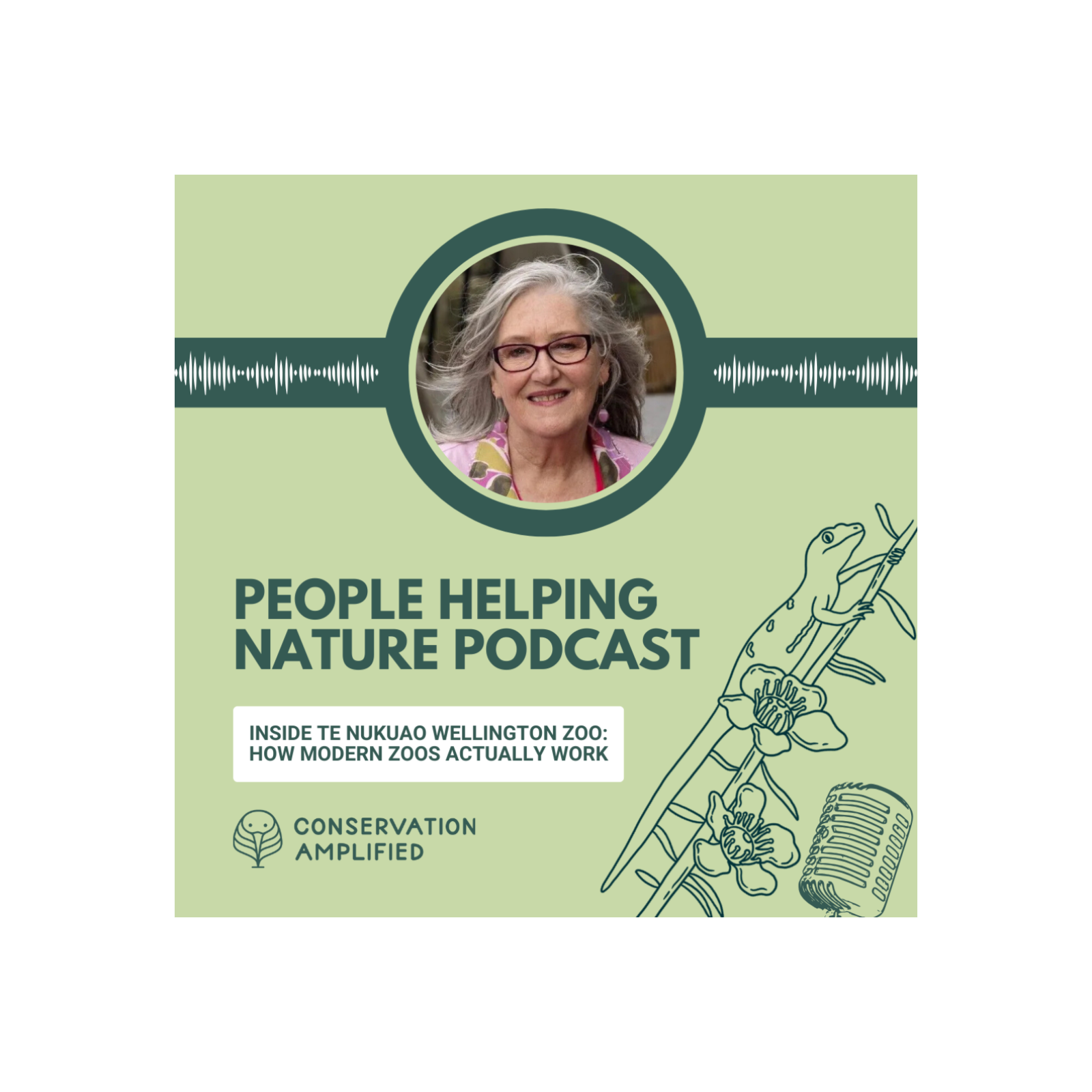People Helping Nature Podcast

People Helping Nature Podcast
Podcast Description
The People Helping Nature Podcast is all about sharing the incredible stories of people who are helping nature. We do this by bringing a megaphone to the world of conservation by featuring people from all walks of life who are doing interesting and important things to help nature thrive. We aim to make it easy for everyone to learn, understand, take action, and feel like they’re a part of the solution. Our vision is simple: make conservation mainstream... Produced by the Conservation Amplified Charitable Trust. Find out more & join the community at www.conservationamplified.org.
Podcast Insights
Content Themes
The podcast explores diverse themes related to conservation, such as habitat restoration, native species protection, and community engagement, with episodes covering topics like restoring native forests, managing feral cats, and innovative conservation tactics in various ecosystems.

The People Helping Nature Podcast is all about sharing the incredible stories of people who are helping nature.
We do this by bringing a megaphone to the world of conservation by featuring people from all walks of life who are doing interesting and important things to help nature thrive.
We aim to make it easy for everyone to learn, understand, take action, and feel like they’re a part of the solution.
Our vision is simple: make conservation mainstream…
Produced by the Conservation Amplified Charitable Trust.
Find out more & join the community at www.conservationamplified.org.
Zoos haven’t always looked like they do today. The role of a “good zoo” is now about playing a crucial role in conservation and advocacy for animals – locally, nationally, and globally.
In this episode, we sit down with Karen Fifield, CEO of Te Nukuao Wellington Zoo and President of the World Association of Zoos and Aquariums (WAZA), to unpack what modern zoos do to protect wildlife beyond what you experience when visiting.
Karen shares how Te Nukuao Wellington Zoo contributes through wildlife hospital care, specialist breeding programmes, fieldwork, and community support – and why transparency, animal welfare, and long-term thinking are essential if zoos are to maintain public trust.
We explore how zoos work alongside community efforts, why some species are kept off display, how global animal welfare standards are set, and the role education plays in helping people take meaningful action for nature.
It’s a wide-ranging conversation about animals, people, ethics, and responsibility – and why good zoos are becoming more important, not less, in a changing world.
Here are some other key topics we discussed:
- The role of storytelling and experience design when building zoo habitats
- What Wellington Zoo does to support local community conservation efforts
- How Wellington Zoo funds their important work
- The very real threat of wildlife trafficking and why working together is critical in addressing it
- Why it’s important to ‘think before you like’ social media content about wild animals interacting with humans
- How to avoid visiting a bad zoo
- Why being more sustainabile in our everyday lives is a way that everyone can help wildlife conservation
- And much more…
👩About Karen:
Originally from Australia, Karen’s zoological career began at Taronga Conservation Society Australia and Zoos Victoria before she joined Te Nukuao Wellington Zoo in 2006. Alongside her Chief Executive role, she has also been the President of the Zoo and Aquarium Association Australasia (ZAA) and is currently the President of the World Association of Zoos and Aquariums (WAZA).
In 2023, Karen was recognised as one of the Power 10 Zoo and Aquarium Blooloop Top 50 Influencers internationally, and in 2016 became a Member of the New Zealand Order of Merit MNZM for services to Business and Animal Welfare.
Under Karen’s leadership, Te Nukuao has celebrated many achievements. In 2009, Te Kōhanga The Nest, a state-of-the-art veterinary hospital, opened. The Zoo was the first Toitū carbon zero-certified zoo in the world in 2013 and won the inaugural WAZA Environmental Sustainability Award in 2018.
In 2024, Mana Whenua gifted the Zoo its te reo name, Te Nukuao Tūroa o Te Whanganui a Tara, which tells the story of the Zoo’s commitment to conservation and care for communities, wildlife and wild places.
🔗Learn more:
- Website: www.wellingtonzoo.com
- WAZA website: www.waza.org
🎙️Learn more about the podcast at www.conservationamplified.org

Disclaimer
This podcast’s information is provided for general reference and was obtained from publicly accessible sources. The Podcast Collaborative neither produces nor verifies the content, accuracy, or suitability of this podcast. Views and opinions belong solely to the podcast creators and guests.
For a complete disclaimer, please see our Full Disclaimer on the archive page. The Podcast Collaborative bears no responsibility for the podcast’s themes, language, or overall content. Listener discretion is advised. Read our Terms of Use and Privacy Policy for more details.